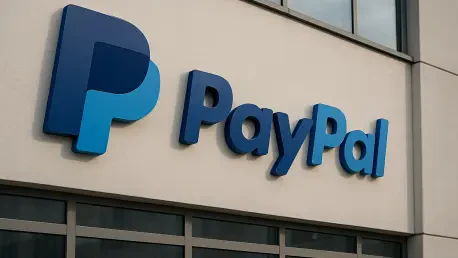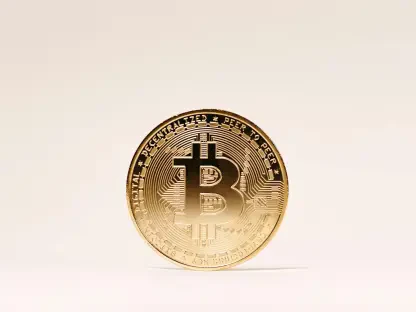The tech world has long been shaped by a select group of visionaries whose early collaboration at PayPal, often dubbed the “PayPal Mafia,” continues to reverberate through industries and beyond. After the company’s acquisition by eBay in 2002 for a staggering $1.5 billion, these individuals didn’t just rest on their laurels; they went on to redefine innovation, business, and even political landscapes. Their story isn’t merely one of financial success but of an enduring ability to spot emerging needs and transform them into global movements. From pioneering electric vehicles to reshaping social media platforms, their influence stretches far beyond Silicon Valley, touching on public policy and societal debates. This remarkable journey raises questions about how a single cohort could wield such power across diverse sectors, often amid intense scrutiny, and what their trajectory means for the future of technology and governance.
Innovation in Technology and Business
Founding Industry-Defining Companies
The alumni of PayPal have demonstrated an extraordinary knack for creating companies that become cornerstones of modern industries, fundamentally altering how people live and work. Elon Musk, for instance, has pushed boundaries with Tesla, driving the adoption of electric vehicles, while SpaceX has revolutionized space exploration with reusable rockets. His bold acquisition of Twitter in 2022 for $44 billion, later rebranded as X, reshaped the social media landscape, sparking debates over digital communication norms. Similarly, Reid Hoffman’s LinkedIn transformed professional networking, creating a platform that connects millions globally for career opportunities. These ventures highlight a shared talent among this group for identifying untapped markets and turning visionary ideas into tangible, world-changing solutions that continue to dominate their respective fields.
Their impact extends to financial innovation as well, with figures like Max Levchin leading the charge through Affirm, a company that popularized the “buy now, pay later” model in digital commerce. This approach has redefined consumer purchasing habits, offering flexibility in an increasingly digital economy. Meanwhile, Peter Thiel’s co-founding of Palantir Technologies has positioned it as a key player in data analysis, particularly for government contracts, showcasing how their influence reaches into critical infrastructure. The ability of these individuals to not only innovate but also scale their ideas globally speaks to a rare combination of foresight and execution. Their companies don’t just fill market gaps; they create entirely new paradigms that shape consumer behavior and industry standards for years to come.
Sustaining Influence Through Strategic Investments
Beyond founding companies, the PayPal alumni have cemented their influence through strategic investments that nurture the next generation of tech pioneers. Peter Thiel’s Founders Fund, for example, has backed numerous startups, acting as an angel investor to fuel innovation across diverse sectors. This approach reflects a broader trend among the group to leverage their wealth and expertise to support emerging technologies, ensuring their fingerprints remain on future advancements. Elon Musk’s recent focus on artificial intelligence through xAI further demonstrates a commitment to tackling complex challenges, pushing the boundaries of what technology can achieve in solving global issues.
This investment strategy often goes hand-in-hand with a collaborative spirit, as many of these individuals maintain close ties, amplifying their collective impact. Their networks create ecosystems where ideas and resources flow freely, fostering innovation at an accelerated pace. Whether it’s funding disruptive startups or guiding young entrepreneurs, their role as mentors and investors ensures that their influence isn’t confined to their own ventures. Instead, it ripples outward, shaping the tech landscape in ways that are often less visible but equally profound. This sustained involvement underscores a resilience that keeps them at the forefront of industry evolution, even as new challenges and competitors emerge.
Intersection with Politics and Public Policy
Shaping Discourse Through Platform Leadership
The influence of the PayPal Mafia isn’t limited to technology; it extends deeply into political and public spheres, often through high-profile platforms that shape societal discourse. Elon Musk’s stewardship of X has placed him at the center of debates over content moderation and free speech, with policy changes sparking both praise and criticism from various quarters. His decisions on the platform have highlighted the power of tech leaders to influence public opinion on a massive scale, raising questions about the role of private entities in governing digital spaces. This intersection of technology and public policy illustrates how their actions can ripple through society, affecting everything from individual expression to global narratives.
Equally significant is the way these figures use their platforms to address broader issues, often aligning with or challenging governmental agendas. The controversies surrounding Musk’s leadership, for instance, reflect a tension between innovation and regulation, a dynamic that continues to evolve as tech intersects with political priorities. Their ability to navigate this complex terrain showcases a blend of entrepreneurial boldness and strategic acumen. By leveraging their technological reach, they don’t just participate in public discourse; they often set its terms, forcing policymakers and society to grapple with the implications of their decisions in real time.
Direct Engagement in Political Advocacy
Beyond platforms, direct political engagement marks another dimension of their impact, as several PayPal alumni have taken active roles in shaping policy and advocacy. Peter Thiel’s involvement in political spheres, including his controversial support for litigation against media outlets, exemplifies how personal convictions can intersect with public influence. His dual focus on tech through Palantir and political activism underscores a willingness to engage in contentious debates, often drawing both admiration and critique. This trend of blending business acumen with political involvement reveals how their expertise in technology can translate into leverage in governmental arenas.
David Sacks, another notable figure, has transitioned from tech entrepreneurship to advisory roles, focusing on policies related to artificial intelligence and cryptocurrency. Through Craft Ventures, he continues to influence industry trends while contributing to discussions on regulation and innovation. This direct engagement with policymaking highlights a broader pattern among the group: an adaptability that allows them to navigate and impact complex systems beyond Silicon Valley. Their presence in these spaces often sparks debate, but it also ensures that technological perspectives are represented in critical decisions, shaping the future of governance in an increasingly digital world.
Reflecting on a Transformative Legacy
Looking back, the journey of the PayPal Mafia stands as a testament to how a shared beginning at a single company sparked transformative changes across technology, business, and politics. Their ventures, from pioneering sustainable transportation to redefining digital communication, have left indelible marks on global industries. Even their forays into political advocacy and public policy reshaped how society grapples with the intersection of innovation and regulation. As their influence unfolded over decades, it became clear that their collective and individual efforts forged pathways that others continue to follow. Moving forward, the tech and policy landscapes will likely draw inspiration from their resilience and foresight, using their successes and challenges as blueprints for navigating future complexities. Their story offers a compelling framework for understanding how visionaries can balance entrepreneurial drive with broader societal impact, setting the stage for ongoing dialogue about the role of technology in shaping tomorrow’s world.









